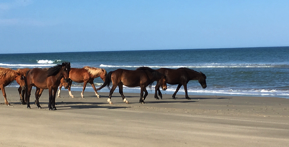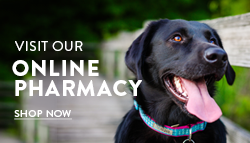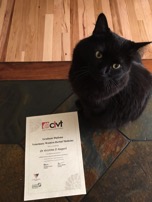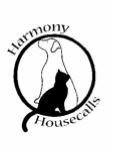2017
Fall Lecturing Herbs, Animal Hospice and Palliative Care
10/23/2017
This has been a busy fall, keeping up with the new herbal medicine course for veterinarians that I am co-teaching in the Outerbanks, North Carolina, as well as lecturing this month at the IAAHPC (International Animal Hospice and Palliative Care) annual meeting. The new textbook was well-received and the first students in the Animal Hospice and Palliative Care Certification Program (100+ hours) completed our graduation, adding more certification letters to keep track of!
It is a relief to have this certification completed and it was such a valuable learning experience to share the knowledge of many experts on topics including pain management, recognition and palliation of clinical signs of discomfort in animals, progression and prognosis of various diseases including cancers and organ failure, holistic and integrative approaches to treatment, the normal processes of death including euthanasia, and additionally all of the important aspects of after care, memorialization and grief that accompany end-of-life care for our animals.
We all have different needs when it comes time to say goodbye to our beloved animal companions. I make an effort to approach this time with flexibility, compassion, and understanding to help families provide the best possible care in any given situation. One of the most valuable things that I can provide is extra time to think things through, during home visits and with additional comfort care for the animals. For more information on end-of-life services, click here or contact me.
It is a relief to have this certification completed and it was such a valuable learning experience to share the knowledge of many experts on topics including pain management, recognition and palliation of clinical signs of discomfort in animals, progression and prognosis of various diseases including cancers and organ failure, holistic and integrative approaches to treatment, the normal processes of death including euthanasia, and additionally all of the important aspects of after care, memorialization and grief that accompany end-of-life care for our animals.
We all have different needs when it comes time to say goodbye to our beloved animal companions. I make an effort to approach this time with flexibility, compassion, and understanding to help families provide the best possible care in any given situation. One of the most valuable things that I can provide is extra time to think things through, during home visits and with additional comfort care for the animals. For more information on end-of-life services, click here or contact me.
New Animal Hospice and Palliative Care Textbook!
06/08/2017

Over the past year, I have had the honor of writing a few chapters in the newly published textbook: Hospice and Palliative Care for Companion Animals, as well as contributing to the first offering of the IAAHPC Animal Hospice and Palliative Care Certification Program, a combination of online and in-person training for veterinarians and veterinary technicians on topics from philosophical and ethical considerations in animal end-of-life care, quality of life considerations and the technical aspects of offering palliative care ("comfort care") to animals in their last days weeks and months.
This is a relatively new field in veterinary medicine and it has been a pleasure to work with the caring individuals involved in developing educational materials and information for professional providers and caregiving families. The beauty of this care is that sometimes animals, just like people, actually live longer than expected when care is focused on comfort and the enjoyment of the life that is still present.
There are many considerations to weigh when faced with terminal illness including prognosis and the possibility of cure. I find these discussions are best approached in the home, involving the whole family, and with multiple visits as we monitor changes and different needs and questions that arise. Please contact me if you would like more information or to schedule an in-home palliative care consultation for your animal.
Herbal education and self-care
05/06/2017

I have had the opportunity to put my varied background as veterinarian, herbalist, martial artist, Waldorf playgroup facilitator, Girl Scout leader, teacher, nature geek, and quiet introvert to use!
My good friend, Dr. Laurie Dohmen, past president of the VBMA (Veterinary Botanical Medicine Association) asked me to join her in teaching an herbal medicine course for veterinarians in the Outer Banks, North Carolina. We just finished the first introductory class last weekend and it was so much fun! She has a full 5 module course planned for hands-on herbal learning and self-care: Veterinary Herbal Apprenticeship and Retreat
Along with herbal and palliative care lectures, Laurie gave me free range to add in a nature gratitude meditation on our herb walk, a nature table in the lecture room to explore the plants and other treasures we found (luckily the horseshoe crab didn't smell too horribly by the end of the weekend!), and some Qi Gong and movement in-between lectures.
Veterinarians are notoriously bad at taking care of themselves (as are any of us with caregiving tendencies…), and putting this aspect of the course together is a great reminder for me to take time to enjoy the little things in every day. This is something I try to remind my animal-loving families of as well.
In order to sustainably take care of our family and our pets we really need to take care of ourselves. This includes the usual advice to rest, exercise, eat well and drink plenty of water, but also to see the beauty in life. Even on the very worst day, I can be grateful knowing that the sun is still shining, the birds are still singing and life is continuing on all around me in its tenacious way.
Gratitude to all!
New online store and pharmacy
04/09/2017
After many years working with various suppliers and companies for medications and supplements, I have set up an online store and pharmacy to better serve my clients and patients and to simplify my own life. As a housecall veterinarian and herbalist, it is difficult to keep every possible medication in stock.
I will continue to keep the essentials on hand for personal delivery and use local human pharmacies, especially for more immediate needs. This store will be for pharmacy use and for items I do not keep in stock. I will also continue to make and deliver my own herbal formulations as those are individualized and from trusted professional quality herbal sources.
I have been concerned about supplements purchased from Amazon or other third party suppliers as they are not coming directly from the manufacturer and are more susceptible to tampering and poor handing (i.e. temperature control, etc.). With this new store, I can offer you a wide variety of products, often at a lower price, and be more sure of the handling and sourcing of these items without having to keep them all on hand myself.
Some products you will find are supplements and nutraceuticals such as joint support (Dasuquin, MegaFlex and other glucosamine/chondroitin supplements), fish oil (RX Ultra, Nordic naturals, Welactin), Probiotics (RX Biotic), anti-oxidants (Cell Advance), anti-parasitics such as flea and tick preventatives (Frontline and others), heartworm prescription medications of all sizes and quantities (Heartgard, etc.), prescription diets (more choices for renal failure and other special diets including Honest Kitchen), anti-anxiety products (Feliway and Adaptil), and more. On the front page I have been able to add some of my favorites to help guide you. Please contact me before ordering anything you are unsure of as the number of products can be overwhelming. Prescription items will need a current exam and authorization before ordering
Here is the link:
Harmony Housecalls - Vets First Choice http://harmonyhousecalls.vetsfirstchoice.com

There is also a link on my home page.
And a coupon code for first time users: welcome62
There are other regular discounts and coupons so be sure to ask!
** Please talk to me before ordering as there are some products that I don't recommend and some that I have specific reasons for choosing for individual patients. This is not meant to substitute for our regular exam visits, but to enhance them with more care options and allow you to control purchasing.
I appreciate any input on your experience with this new store option, you are by no means obligated to use it. Contact me with suggestions or needs.
I will continue to keep the essentials on hand for personal delivery and use local human pharmacies, especially for more immediate needs. This store will be for pharmacy use and for items I do not keep in stock. I will also continue to make and deliver my own herbal formulations as those are individualized and from trusted professional quality herbal sources.
I have been concerned about supplements purchased from Amazon or other third party suppliers as they are not coming directly from the manufacturer and are more susceptible to tampering and poor handing (i.e. temperature control, etc.). With this new store, I can offer you a wide variety of products, often at a lower price, and be more sure of the handling and sourcing of these items without having to keep them all on hand myself.
Some products you will find are supplements and nutraceuticals such as joint support (Dasuquin, MegaFlex and other glucosamine/chondroitin supplements), fish oil (RX Ultra, Nordic naturals, Welactin), Probiotics (RX Biotic), anti-oxidants (Cell Advance), anti-parasitics such as flea and tick preventatives (Frontline and others), heartworm prescription medications of all sizes and quantities (Heartgard, etc.), prescription diets (more choices for renal failure and other special diets including Honest Kitchen), anti-anxiety products (Feliway and Adaptil), and more. On the front page I have been able to add some of my favorites to help guide you. Please contact me before ordering anything you are unsure of as the number of products can be overwhelming. Prescription items will need a current exam and authorization before ordering
Here is the link:
Harmony Housecalls - Vets First Choice http://harmonyhousecalls.vetsfirstchoice.com

There is also a link on my home page.
And a coupon code for first time users: welcome62
There are other regular discounts and coupons so be sure to ask!
** Please talk to me before ordering as there are some products that I don't recommend and some that I have specific reasons for choosing for individual patients. This is not meant to substitute for our regular exam visits, but to enhance them with more care options and allow you to control purchasing.
I appreciate any input on your experience with this new store option, you are by no means obligated to use it. Contact me with suggestions or needs.
Spring reminders!
03/21/2017
Although here in Iowa we are still fluctuating between summer and winter temperatures, spring will get here soon! It is time to be sure heartworm preventative medications are on hand along with any flea and tick preventatives as needed for your animals' exposures.
If you need reminders about how nasty Heartworm Disease is, go here:
www.veterinarypartner.com - Heartworm Information Center
And Lyme Disease seems to be becoming more prevalent as well. The best preventative is keeping the ticks that spread it away. It is surprising how tiny these ticks are—the size of a poppy seed, so really hard to find in dog fur!
Info on Lyme (Not Lyme's!) Disease here:
www.veterinarypartner.com - Lyme Disease
I am often asked if there are more "natural," non-chemical or non-toxic products that can be used to keep these parasites away. Unfortunately, and this is a consensus among most of the herbal veterinarians I know, nothing works as well and as quickly as the pharmaceutical products for flea, tick and heart worm prevention. Many of these pharmaceutical products are very low dose and I do have some favorites for that reason. Herbs and essential oils that are anti-parasitic can quickly move into the more toxic realm depending on dosage and use. Herbs are not chemical-free, they are made up of plant chemicals (phytochemicals) which are the sources of many pharmaceutical medicines. Many phytochemicals are extremely helpful, some can be toxic. It is important to learn the difference, which is why I have spent so much time studying them!
Some essential oils can be used safely in dogs for flea and tick prevention—they need to be applied multiple times a day, but in a very dilute form and long term use in animals with a such sensitive noses may cause their own problems. Many of my clients, including myself, do not have the time and/or memory to spray their dog multiple times a day. Cats, with their different liver metabolism, are especially sensitive to essential oils and I am cautious about dogs with any liver problems as well. I'm glad there are options.
Learning the natural cycles of the insects throughout the day can help with avoidance, but is not foolproof. Those insects do not always follow the rules. For example, mosquitoes which spread heart worm disease are generally more active during dawn and dusk, but can also be quite active in cool moist areas any time of the day. Heart worm is such an awful disease, I really don't recommend risking it. Ticks tend to hang out in tall grass waiting for their victims to walk by. They are also much more prevalent in the spring, but again they can really be around any time the weather is above freezing. I hear having chickens in the yard is a great way to keep tick populations down!
I do my best to help people minimize toxic chemical exposures and reduce the amount needed by only treating during the active seasons. Feel free to contact me if you'd like a longer discussion on these important issues.
If you need reminders about how nasty Heartworm Disease is, go here:
www.veterinarypartner.com - Heartworm Information Center
And Lyme Disease seems to be becoming more prevalent as well. The best preventative is keeping the ticks that spread it away. It is surprising how tiny these ticks are—the size of a poppy seed, so really hard to find in dog fur!
Info on Lyme (Not Lyme's!) Disease here:
www.veterinarypartner.com - Lyme Disease
I am often asked if there are more "natural," non-chemical or non-toxic products that can be used to keep these parasites away. Unfortunately, and this is a consensus among most of the herbal veterinarians I know, nothing works as well and as quickly as the pharmaceutical products for flea, tick and heart worm prevention. Many of these pharmaceutical products are very low dose and I do have some favorites for that reason. Herbs and essential oils that are anti-parasitic can quickly move into the more toxic realm depending on dosage and use. Herbs are not chemical-free, they are made up of plant chemicals (phytochemicals) which are the sources of many pharmaceutical medicines. Many phytochemicals are extremely helpful, some can be toxic. It is important to learn the difference, which is why I have spent so much time studying them!
Some essential oils can be used safely in dogs for flea and tick prevention—they need to be applied multiple times a day, but in a very dilute form and long term use in animals with a such sensitive noses may cause their own problems. Many of my clients, including myself, do not have the time and/or memory to spray their dog multiple times a day. Cats, with their different liver metabolism, are especially sensitive to essential oils and I am cautious about dogs with any liver problems as well. I'm glad there are options.
Learning the natural cycles of the insects throughout the day can help with avoidance, but is not foolproof. Those insects do not always follow the rules. For example, mosquitoes which spread heart worm disease are generally more active during dawn and dusk, but can also be quite active in cool moist areas any time of the day. Heart worm is such an awful disease, I really don't recommend risking it. Ticks tend to hang out in tall grass waiting for their victims to walk by. They are also much more prevalent in the spring, but again they can really be around any time the weather is above freezing. I hear having chickens in the yard is a great way to keep tick populations down!
I do my best to help people minimize toxic chemical exposures and reduce the amount needed by only treating during the active seasons. Feel free to contact me if you'd like a longer discussion on these important issues.
GDVWHM
01/20/2017

No, that's not some new text slang I learned from my teenagers!
After quite a long haul working toward this degree, I have completed my Graduate Diploma of Veterinary Western Herbal Medicine (GDVWHM) through the College of Integrative Therapies (CIVT). This was an intensive course working through botanical identification, chemical composition, traditional uses as well as scientifically verified medicinal actions, adverse reactions, herbal medicine making, quality control, and much more.
My final research project was a paper on herbal medicines for use in animal hospice and palliative care, joining two of the most important aspects of my veterinary services. One of my biggest take-away findings in writing this paper is that just about every medicinal plant that we use has antioxidant and anti-inflammatory properties to some degree. This makes sense as the plants use these qualities for their own healing and self-preservation. Many of these plants are used as food and teas and can be added into the diets of our animals for gentle support.
There are most certainly times when stronger medicines are needed and I definitely advocate for addressing any distressing clinical signs such as pain, nausea and other concerns with appropriate and timely treatments with pharmaceutical drugs. This is why I like the term "integrative medicine" where we can integrate multiple aspects of care for each individual patient.
I am very much looking forward to spring, planting my herb garden and getting to know the plants even better!
